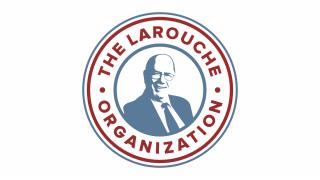Feb. 15, 2025 (EIRNS)—There is such a thing as natural law—not the positive law of a rules-based order, but a knowable, truthful natural order which manifests itself in justice, goodness, and universal progress. Natural law, of which we must constantly perfect our understanding, provides the only truly successful and universal basis for the organization of human affairs. It is this principle which gives support to the assertion of South Africa’s former Minister of International Relations and Cooperation Naledi Pandor, in her remarks to the International Peace Coalition meeting of Feb. 14, that “we can be free together.”
The violation of natural law is the cause of the very obvious fact that the old colonial order is breaking apart. This was evidenced most recently by the uproar in and around the Feb. 14-16 Munich Security Conference. Not only have European officials gone apoplectic over U.S. Vice President Vance’s speech calling out EU governments’ blatant hypocrisy, but more importantly, the death of the NATO war policy has been on full display, with those same officials shaking their fists at the very likely prospect of a peaceful resolution to the Ukraine conflict—without Europe and NATO controlling the outcome. Discussions between the relevant parties are going ahead, and German Defense Minister Boris Pistorius observed unhappily that should the EU be excluded from the negotiating table, “This may prove to be a historic, pivotal moment for transatlantic relations, after which we risk taking different paths.”
While a path different from the NATO warpath is absolutely required, and an end to the Ukraine conflict necessary, that in and of itself won’t bring peace. As Helga Zepp-LaRouche outlined in her closing remarks to the Feb. 14 International Peace Coalition (IPC) meeting, a solution will only come if we can overcome the disease of geopolitical thinking: “[W]e have to end geopolitics. Geopolitics in my view is the biggest brain disease I can think of. As long as you think that you need an enemy, that you have to divide people into foes and friends, we will not get out of this trap. We have to teach people to make the jump to think of the one humanity first before you think about your national interests. If we can make such a jump, then I think we can solve all the problems easily.”
This thinking must be applied urgently to the situation in Southwest Asia. A series of conferences and discussions is planned over the next weeks, led by Egypt, Saudi Arabia, and other regional partners, to come up with a solution for Gaza; solution concepts must be presented for deliberation to these and other such gatherings that address the interests of all parties involved and transform a deadlocked and impossible situation into one in which previously nonexistent pathways forward are created. The economic development prospect of the Oasis Plan could do just that. Were that to occur, Gaza, and Southwest Asia generally, could become the model for the formation of a new security and development architecture for the world that addresses the interests of all nations and all people.
But can it work? Helga Zepp-LaRouche implored the IPC participants, “I think that one should not be deterred by problems of the past. I think that we are in such a tectonic change of everything that new openings emerge.”
Zepp-LaRouche said in her opening remarks: “Looking at this picture … and given the fact that the old order is breaking apart—however, the new order has not yet taken shape—I think it is extremely urgent that we move with the International Peace Coalition and all related forces to try to put a New Paradigm on the table. As I have said many times before … all the problems of the world can only be addressed efficiently if one agrees on a new global security and development architecture which takes into account the interests of every single country on the planet, in the tradition of the Peace of Westphalia.”






